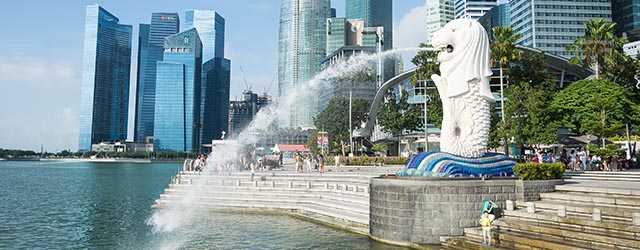Heng Swee Keat, Singapore’s education minister and former central bank managing director, was named the nation’s next Finance minister after a landslide election victory in September by the ruling People’s Action Party and prime minister Lee Hsien Loong.

Lee has said that the new economic appointment is part of a broader cabinet reshuffling to prepare the groundwork for Singapore’s next generation of leadership. His party has been in power for 50 years, and Lee would like to embolden a new crop of government leaders to appeal to young voters. The shuffle is also indicative of a focus on the economy, which has been the central issue for some years.
“In recent elections, in fact, no candidate has made foreign policy or international security issues the focus of the campaign,” said Barry Desker, professor of Southeast Asia policy at Nanyang Technological University in Singapore—it’s all about the economy.
Heng, who replaces deputy prime minister Tharman Shanmugaratnam as Finance minister, faces challenges at home and abroad.
In a recent country report, the IMF noted that Singapore’s highly open economy exposes it to “external shocks, most notably slower global growth and the side effects from volatility in global financial markets.”
Domestic vulnerabilities, including high levels of private debt, can amplify the impact of external shocks, the IMF said. Other notable challenges include a rapidly aging population, income inequality and the physical limits of a city-state.
Singapore has responded by adopting a new growth model focused on higher labor productivity. To that end, it limits its dependence on foreign workers and accepts short-term slower growth. (Singapore’s projected growth rate for 2015 is 2.9%.)
Singapore is one of Asia’s main trade and financial hubs and a core member of the Trans-Pacific Partnership (TPP), a historic trade deal among 12 Asia-Pacific and North American nations. It is an expansion of the Trans-Pacific Strategic Economic Partnership Agreement signed by Brunei, Chile, Singapore and New Zealand.
The TPP agreement was concluded by trade negotiators early October and now awaits approvals by the various national parliaments.
The new Singaporean cabinet’s members, including the Finance minister, will have to ensure the approval and successful implementation of TPP in order to maintain Singapore’s status as a world trade leader and to counterbalance China’s rising security and economic dominance in the South Asian region.
Heng’s background as the head of Singapore’s central bank will be crucial as he balances these elements.



